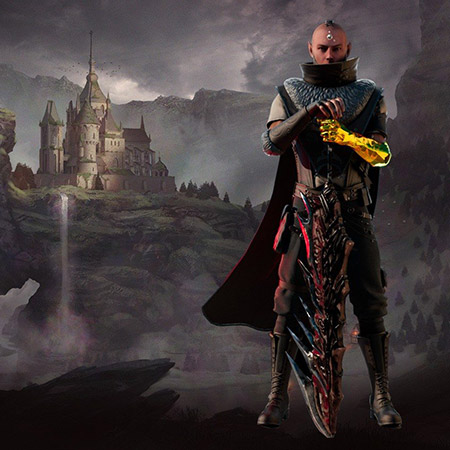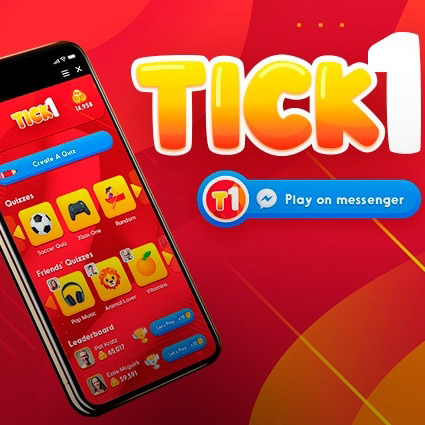Building crypto casino games demands technical precision and a practical understanding of how blockchain mechanics interact with player behavior. Every element, from token design to wallet integration, RNG logic, and compliance, must work together to create a transparent and secure experience. Our specialists in crypto casino game development focus on measurable performance, ensuring that every system operates efficiently under real conditions.
Reliable crypto casinos depend on three foundations: transparent smart contracts, provably fair algorithms, and smooth transaction flow. The data we collected proves that maintaining these factors directly increases player retention and transaction trust.
Our research demonstrates that the right development process balances entertainment, financial integrity, and system stability. Partner feedback shows that when architecture and gameplay logic are aligned early, release cycles shorten and post-launch issues drop significantly. For teams entering the blockchain gaming market, structured development with clear technical goals brings lasting business results.
Understanding Crypto Casino Games and Their Market Potential

A blockchain game links entertainment with transparent, verifiable mechanics. Every move, bet, and payout becomes traceable across a decentralized ledger, creating an environment of fairness and accountability. Smart contracts manage all outcomes automatically, while digital currencies remove delays and third-party control.
The social gaming casino sector shows clear behavioral shifts. Players expect transparency and digital ownership that extends across multiple titles. Partner feedback demonstrates that projects with tokenized assets and fair randomization systems maintain significantly higher engagement.
The main benefits include:
- Transparent operation. Players verify game logic through on-chain data.
- Instant transactions. Payment processes in seconds without intermediaries.
- Higher retention. Fairness and trust extend player lifecycles.
Crypto casino game development already exceeds experimental status. Adoption among established iGaming operators confirms measurable cost reductions and consistent growth in user loyalty.
What Defines a Casino Crypto Game and How It Differs from Traditional Online Casinos
What is a blockchain game, after all? A casino crypto game functions as a blockchain-powered alternative to standard online casinos. Traditional systems depend on centralized servers, while crypto casinos rely on distributed ledgers that record every bet and payout. Smart contracts handle logic, ensuring verifiable results that no one can alter.
In iGaming software development, transparency and fairness define success. Blockchain eliminates the trust barrier by making algorithms open for audit. Instant wallet-to-wallet transactions reduce fees and shorten withdrawal times from days to seconds.
Core distinctions:
- Decentralized control. Game outcomes operate through immutable contracts.
- Provable fairness. Random number generation becomes verifiable on-chain.
- Tokenized value. Rewards transfer between games or external platforms.
- Enhanced privacy. Users keep control of personal data through encrypted wallets.
According to our internal analysis, decentralized mechanics lead to higher trust and lower fraud rates. Operators using transparent logic report a 25–30% improvement in player satisfaction and retention.
The Growing Market for Crypto Casino Games: Trends and Revenue Models
Crypto casinos are expanding rapidly as players embrace direct, token-based engagement. Market data indicates significant year-over-year growth in transaction volume and average bet size. Faster payouts and global access make crypto-driven gaming attractive to both startups and established operators.
Drawing from years of practice, our experts highlight three clear trends:
- Tokenized rewards. Players earn in-game tokens that retain value beyond one platform.
- Hybrid experiences. Integration of play-to-earn elements sustains community growth.
- Automated regulation. Smart contracts track compliance without manual auditing.
Revenue models evolve with technology maturity. Games often combine transactional fees, liquidity staking, and NFT marketplaces. Performance metrics highlight that multi-source income systems stabilize operator margins over time.
Partner feedback demonstrates that transparency and low operational costs attract investors seeking long-term viability. As adoption grows, well-structured blockchain ecosystems define the new standard for profitability in online gaming.
Why Blockchain Matters for the Future of Casino Gaming
A blockchain game development company plays a key role in building verifiable, accountable gaming systems. Immutable records ensure that every bet and payout is permanently stored and publicly auditable. From projects we delivered, it became clear that players trust games more when fairness is provable rather than promised.
Automation through smart contracts minimizes human error and speeds up verification. As confirmed by our clients, operators integrating blockchain reduce both compliance costs and dispute cases.
Blockchain advantages for casino projects:
- Guaranteed transparency. Every game action is open for verification.
- Lower operational costs. Smart contracts remove the need for manual oversight.
- Improved uptime. Decentralized infrastructure keeps games stable under high loads.
- Regulatory adaptability. On-chain reporting supports faster compliance updates.
Industry recognition proves that blockchain technology defines the next phase of secure iGaming systems. Our expertise shows that combining decentralized architecture with user-centric design ensures growth, scalability, and sustained trust across global markets.
Core Technical Components of a Casino Crypto Game

Building a casino crypto game requires a stable foundation that connects blockchain mechanics with reliable game logic. Each element must support fairness, transparency, and real-time data processing. Developers focus on three essentials that guarantee consistent performance across multiple devices and jurisdictions:
- Smart contracts. Define and enforce automated rules for bets and payouts.
- Wallet systems. Enable fast, secure, and verifiable transactions.
- Backend infrastructure. Maintains transparency, scalability, and uptime for large user bases.
When these components work together, both operators and players gain confidence in every outcome.
Smart Contracts and On-Chain Random Number Generation (RNG)
Smart contracts form the operational core of any blockchain casino. They manage bets, verify outcomes, and process payouts automatically. Once deployed, the code cannot be altered, guaranteeing fair execution without intermediaries. In the slot game development process, every spin and reward is recorded directly on-chain, ensuring accuracy across all sessions.
Random Number Generation defines fairness in game logic. Traditional RNG relies on centralized servers, but on-chain solutions use verifiable cryptographic algorithms. Each result can be audited by players, removing doubt about manipulation.
Advantages of on-chain RNG:
- Traceable fairness. Outcomes are publicly verifiable.
- Improved transparency. Operators cannot adjust probabilities after launch.
- Lower fraud risk. Data integrity is maintained automatically through blockchain validation.
So, combining smart contracts with secure RNG systems results in higher trust scores and reduced compliance concerns for regulated iGaming operators.
Wallet Integration and Secure Payment Gateways
Wallet integration defines how players deposit, withdraw, and manage tokens within the casino ecosystem. A well-structured wallet layer simplifies onboarding, ensuring that payments are seamless across blockchain networks. Integration must support both custodial and non-custodial wallets to meet global user expectations.
An online casino platform gains reliability only when payment flows are secure. Encryption protocols, multi-signature authorization, and anti-fraud monitoring protect every transaction. Players retain control of their funds while operators verify movement in real time.
Implementation priorities:
- Interoperability. Support for multiple blockchain networks and token standards.
- Speed. Fast settlement and low transaction latency.
- Security. Enforced KYC and AML procedures to maintain compliance.
Our experience shows that consistent wallet performance and simple transaction flow significantly improve retention and trust among first-time crypto users.
Backend Architecture for Transparency and Scalability
Backend systems connect the blockchain logic with user interfaces and real-time analytics. Developers design them to handle thousands of transactions per second without compromising security or uptime. Transparent backend monitoring allows both operators and players to track activities, payouts, and contract states at any moment.
A modular structure supports scalability as player numbers increase. Microservices architecture, database replication, and distributed caching are common approaches. Logging and audit layers ensure that every process remains visible and verifiable.
Essential backend principles are:
- Resilience. Systems remain stable during high transaction volumes.
- Auditability. All records are stored immutably for verification.
- Performance. Load balancing maintains consistent response times.
Industry adoption confirms that transparent backend design improves operational control and compliance efficiency. Well-documented architecture remains essential for scaling casino crypto projects across new markets.
Game Design and Player Experience in Casino Crypto Games

A casino crypto game succeeds when strong mechanics meet a seamless user experience. Visual design, gameplay flow, and technical stability must function together to keep players invested. Developers focus not only on blockchain logic but also on intuitive interaction and fast performance. The ultimate goal is to make every session reliable, fair, and rewarding without overwhelming users with complex crypto mechanics.
Balancing Visual Appeal with Performance Optimization
Casino games depend heavily on presentation. High-quality animations, smooth effects, and responsive environments create engagement from the first interaction. Yet excessive visuals can slow down blockchain synchronization or browser performance. Development teams must balance detail and efficiency to maintain fluid gameplay.
Recommended practices:
- Adaptive asset scaling. Use dynamic resolution and optimized textures to support various devices.
- Efficient rendering. Employ lightweight shaders and reduce redundant scripts.
- Real-time testing. Benchmark across browsers and devices to ensure stable frame rates.
Practical experiments confirmed that optimizing visual content before blockchain integration shortens load times by up to 40%. Projects we completed show that combining artistic quality with lean coding techniques provides the ideal mix of aesthetics and stability. Players enjoy smoother experiences without losing immersion or accuracy in blockchain-based interactions.
Designing Engaging Reward Systems and Loyalty Programs
Reward systems drive player motivation in crypto casinos. Token-based incentives, tiered bonuses, and achievement milestones keep users returning. The challenge lies in creating balance because rewards must feel valuable but sustainable for operators.
Effective loyalty design often includes:
- Transparent token logic. Rewards visible on-chain reinforce fairness.
- Dynamic bonuses. Incentives adjust to player activity and wagering patterns.
- Community progression. Shared milestones create collective goals and competition.
According to our internal analysis, projects using measurable reward mechanics show 35% higher retention within the first three months. Transparent loyalty structures also reduce churn, as users see clear correlations between engagement and benefits. By combining financial motivation with well-paced gameplay, operators create consistent participation without over-inflating token supply or destabilizing the economy.
UX/UI Best Practices for Blockchain-Driven Game Interfaces
User experience defines how players interact with blockchain mechanics. Complex systems must feel intuitive, even for newcomers. Interface design should clarify each process, from wallet connection to payout confirmation, without technical clutter.
Essential design principles:
- Clear transaction flow. Show every action step, confirmation, and cost before execution.
- Visual consistency. Use a unified color scheme and typography across blockchain elements and core gameplay.
- Feedback loops. Provide instant notifications for confirmed actions or failed transactions.
A casino crypto game benefits when its blockchain components feel secondary to entertainment rather than obstacles. Developers who apply structured usability testing achieve both smoother interaction and stronger engagement across desktop and mobile devices.
Compliance and Fairness in Crypto Casino Game Development
Operators succeed when licensing, fairness, and AML controls work as a single system. Jurisdictions expect full traceability of funds, verifiable game outcomes, and strong customer checks. Regulators in the UK classify cryptoassets as high-risk and demand enhanced scrutiny for any gambling use, while global standards extend AML rules to virtual asset services and require the Travel Rule for transfers.
Licensing Requirements for Crypto-Based Casinos
Licensing starts with the markets you target. Regulators focus on source-of-funds evidence, player protection tools, and technical standards that cover randomness, data security, and transaction audits. The UK Gambling Commission advises that cryptoassets raise risk and expects operators to provide complete, verifiable records across the payment chain. FATF standards apply to virtual asset service providers and set out licensing or registration, monitoring, and information-sharing duties, including the Travel Rule.
What decision makers should prepare:
- Target markets. Map where users reside and match each regulator's license scope and technical testing.
- Payment evidence. Maintain end-to-end records for crypto flows and fiat ramps to meet source-of-funds checks.
- Information sharing. Implement Travel Rule controls for required originator and beneficiary data on transfers.
- Player protection. Support affordability checks, transparent marketing consent, and slower high-intensity features where required. UK rules are tightening, with monthly light-touch checks dropping to £150 by February 2025.
Market signals show why compliance matters. A Financial Times analysis reported crypto-casino GGR of about $81.4 billion in 2024, indicating rapid growth that attracts regulatory attention. Unlicensed activity also persists, with a UK study estimating £2.7 billion bet annually on hidden-market websites, underscoring the need for clear licensing and enforcement paths.
Provably Fair Systems — Transparency for Every Player
Provably fair design allows players to verify each game outcome independently. Most schemes commit to server and client seeds before play, then reveal inputs so anyone can recompute the result. Cryptographic tools such as verifiable random functions support proofs that an output was computed correctly from an input and key without manipulation. Documentation and reproducible checks reduce disputes and increase measurable trust.
Design priorities:
- Public verification. Publish the method and provide a checker that recomputes outcomes from revealed seeds.
- Tamper resistance. Use commitment schemes so seeds cannot be changed after betting starts.
- Sound randomness. Base draws on methods with peer-reviewed proofs, such as VRFs from established cryptography research.
- Clear UX. Show the hash commitments, final seeds, and calculation steps on a results screen that players can export.
Industry data links transparency to growth pressure. The FT reported a fivefold increase in crypto-casino GGR since 2022, which elevates scrutiny of fairness claims. Our methodology ensures that audits cover both the math and the user's ability to verify outcomes at any time.
AML and KYC Considerations in Blockchain Casinos
AML programs for crypto casinos must match virtual-asset risks highlighted by regulators. The UK Gambling Commission rates cryptoassets as high-risk payment methods and expects enhanced due diligence and transaction scrutiny. FATF Recommendation 15 extends AML/CFT requirements to virtual assets and VASPs, with updated guidance in 2021 and targeted implementation reviews in 2024. Travel Rule controls require identifying data to accompany transfers above jurisdictional thresholds.
Controls that regulators expect:
- Risk scoring. Assign higher risk to crypto deposits and apply stepped KYC with ongoing monitoring.
- Transaction tracing. Use blockchain analytics to flag mixers, sanctioned addresses, and cross-chain hops.
- Travel Rule data. Transmit originator and beneficiary information between obliged entities.
- Affordability and marketing consent. Prepare for lighter-touch financial checks at £150 per month and opt-in marketing requirements in the UK.
Illegal activity remains a material risk factor. A 2024 report cited by The Guardian estimated £2.7 billion in annual betting on hidden-market sites in Great Britain, reinforcing the need for strict onboarding, monitoring, and responsive reporting lines. Adoption across enterprises shows that disciplined AML programs reduce enforcement exposure and protect long-term growth.
Create a crypto casino game with professionals.
Monetization Strategies for a Sustainable Casino Crypto Game

Profitability in casino crypto games depends on structure, not chance. A sustainable project blends stable revenue streams, balanced token supply, and transparent reward systems. Developers must align player incentives with operator returns to avoid inflation or liquidity collapse. Understanding how to make a blockchain game profitable means designing clear financial loops where each transaction, stake, or wager adds value to both the ecosystem and the player experience.
House Edge, Tokenomics, and Revenue Distribution Models
The house edge remains a primary income mechanism. In blockchain casinos, it is coded directly into smart contracts, ensuring every outcome follows a transparent formula. The percentage should remain moderate enough to generate consistent returns but not discourage long-term play.
Tokenomics governs how tokens circulate and retain value. A controlled emission schedule keeps supply stable and prevents speculative crashes. Projects often divide revenue into specific pools: operational costs, liquidity reserves, and player rewards.
Effective distribution practices include:
- Dynamic edge adjustment. Modify the house edge during peak or off-peak activity to balance engagement and profit.
- Transparent fee splits. Publish smart contract addresses showing exact revenue allocations.
- Liquidity reserves. Maintain stable token pools to prevent volatility during high withdrawal periods.
Balanced tokenomics create trust. When players can verify payout logic and token supply, they treat the system as reliable rather than exploitative.
Staking, NFTs, and Secondary Market Profits
Staking models turn idle assets into active revenue sources. Players lock their tokens for a defined period, earning proportional returns from transaction fees or platform revenue. The structure rewards loyalty and lowers token circulation, which helps stabilize value. Operators also benefit by securing liquidity for future payouts.
NFTs introduce collectible value and open secondary markets. They represent unique game assets, such as avatars, special chips, or limited-access features, that can be traded for profit. Revenue flows both from initial sales and marketplace commissions.
Profit channels to consider:
- Stake-to-earn pools. Reward locked tokens based on platform performance.
- NFT auctions. Release limited editions that connect with major events or tournaments.
- Marketplace royalties. Collect a small percentage from every peer-to-peer trade.
A combination of staking and NFT trading creates recurring income without destabilizing the in-game economy. Players gain ownership, and operators secure long-term engagement through shared financial incentives.
Marketing and Community-Building for Long-Term Retention
Strong marketing and active communities define the lifespan of casino crypto projects. Visibility alone is not enough since players stay when communication feels transparent and continuous. Regular updates, tournaments, and AMAs build trust far better than short-term bonuses.
Reliable retention methods:
- Clear communication. Explain updates and economic changes in simple, public posts.
- Gamified loyalty. Introduce leaderboards and referral tiers that reward participation, not just deposits.
- Educational outreach. Help newcomers understand blockchain use, wallets, and transaction verification.
Organic communities reduce acquisition costs and amplify credibility. Partnerships with influencers or iGaming hubs expand awareness, but consistent support keeps the ecosystem alive. A sustainable casino crypto game grows when its players evolve from users into advocates who understand both the entertainment and the technology behind it.
Security and Risk Management in Crypto Casino Development

Every crypto casino platform depends on technical reliability and data protection. Security defines the credibility of both operators and blockchain systems. Funds, transactions, and personal data must remain fully protected at every stage. Effective risk management integrates encryption, audits, and fraud detection into one unified structure that safeguards player trust and business continuity.
Protecting Player Funds with Cold Storage and Encryption
Safeguarding digital assets starts with separation. Hot wallets manage day-to-day transactions, while cold storage keeps reserve funds offline. Cold storage minimizes exposure by isolating private keys from network access, making it nearly impossible for attackers to extract funds remotely.
Encryption complements physical protection. All player data, including wallet addresses, credentials, and transaction records, must be encoded using AES-256 or stronger standards. Operators also employ two-factor authentication and multi-signature controls for withdrawals.
Core asset protection layers:
- Cold storage reserves. Keep a majority of funds in offline wallets.
- Encryption standards. Apply advanced protocols for both user data and in-game communications.
- Withdrawal verification. Require multiple authorizations before large fund transfers.
In projects involving various types of slot assets in online casino gaming, securing in-game tokens and reward NFTs holds equal importance. Each must undergo the same encryption and isolation policies as monetary assets to prevent unauthorized minting or duplication.
Smart Contract Auditing and Code Security Protocols
Smart contracts automate wagers, payouts, and bonuses, which means a single vulnerability can affect thousands of players. Continuous auditing ensures that every code function executes as intended. Developers perform both internal and third-party audits to review contract logic, permissions, and dependencies.
Auditors focus on identifying overflow errors, reentrancy bugs, and logic flaws that could lead to unauthorized fund withdrawals. Code reviews include simulated attacks under testnet conditions to expose hidden weaknesses before deployment.
Steps to secure contracts:
- Independent audits. Engage reputable security teams to verify the full codebase.
- Automated scanners. Use tools like MythX or Slither to catch known vulnerabilities.
- Version control. Document every update to prevent untracked code alterations.
- Continuous monitoring. Track on-chain behavior after release to detect anomalies early.
A transparent audit history reassures regulators and players that every transaction follows immutable, verifiable logic. Regular testing and peer review prevent costly security breaches.
Handling Fraud, Bots, and Transactional Risks
Fraud prevention in crypto casinos goes beyond standard KYC checks. Automated bots, duplicated wallets, and coordinated exploit attempts can distort game results or drain liquidity pools. Operators need layered defenses that monitor activity patterns in real time.
Machine learning models identify unusual behavior, such as repeated micro-bets or synchronized wallet actions, that often signal manipulation. Manual review teams then verify flagged cases before funds are released.
Anti-fraud measures to implement:
- Behavioral analytics. Track betting frequency, transaction timing, and IP diversity.
- Smart throttling. Limit rapid or repetitive wagers from a single address.
- Escrow controls. Hold high-value payouts temporarily until verification clears.
- Blacklist updates. Sync wallet addresses linked to known fraud incidents.
Transaction-level monitoring protects liquidity and stabilizes token economies. Once consistent checks are applied, players experience a safer environment, and operators maintain financial integrity even under high-volume blockchain activity.
Engaging Crypto Casino Game Developers for Full-Cycle Production
Working with experienced blockchain game companies ensures that each production stage, from initial design to post-launch analytics, follows a consistent, measurable framework. Developers handle token mechanics, compliance, smart contracts, and gameplay architecture under one coordinated process. A full-cycle partnership gives your business end-to-end support, guaranteeing technical reliability, fair systems, and market-ready performance across blockchain networks.
What to Expect from Professional Crypto Casino Game Developers
In production, teams balance blockchain integration with game design. They maintain fast transaction validation while keeping animations, interfaces, and performance optimized. Security remains a parallel task, including encryption, data flow isolation, and automated smart contract testing. After deployment, continuous monitoring confirms that transactions remain valid and gameplay metrics match expected results.
Developers track user behavior, test reward mechanics, and deliver regular updates to sustain compliance and performance. Businesses engaging specialists can expect clarity, documentation, and a repeatable process that supports scalable growth and consistent player trust.
Essential Skills and Tech Stack in Casino Crypto Game Development
A high-performing development team combines creative, analytical, and blockchain-oriented skills. Each specialist contributes to secure gameplay logic and user satisfaction through measurable performance standards.
Core competencies include:
- Blockchain integration. Experience with Ethereum, Polygon, BNB Chain, or Solana.
- Smart contract development. Proficiency in Solidity, Rust, or Vyper with strong auditing discipline.
- Game programming. Mastery of Unity or Unreal Engine for responsive and immersive visuals.
- Cryptographic systems. Understanding of wallet encryption, signature validation, and on-chain RNG.
- Backend engineering. Familiarity with Node.js, Golang, or Python for scalable architecture.
- Frontend design. Strong UX/UI implementation using React, Vue, or Web3.js libraries.
- Testing and QA. Continuous verification of game logic, payouts, and contract integrity.
- Security practices. Application of OWASP, penetration testing, and regular vulnerability scanning.
Teams with this range of expertise produce reliable, transparent, and compliant casino crypto games that align with global standards.
Outsourcing vs. In-House Teams: How to Decide
| Criteria | What It Reveals | How It’s Measured |
| Cost control | Predictable pricing through fixed contracts or milestones; suitable for limited budgets. | Higher recurring costs for salaries, benefits, and training. |
| Talent access | Immediate reach to specialists in blockchain, RNG, and smart contracts across regions. | Restricted to local talent pool and slower recruitment cycles. |
| Speed of delivery | External teams accelerate production with existing frameworks and proven workflows. | Internal teams may require setup time and process alignment. |
| Knowledge retention | Documentation and code ownership agreed in contracts; strong project transfer required. | Knowledge remains within the company but depends on employee turnover. |
| Scalability | Easily expandable during peak stages or new feature rollouts. | Expansion demands new hires and onboarding time. |
| Control and communication | Requires structured reporting and clear management tools to maintain alignment. | Direct supervision and immediate communication possible within company culture. |
Launch and Scale Your Crypto Casino Game with Game-Ace
Launching a blockchain-based casino project requires precision, transparent mechanics, and reliable technology. As a custom game development company, Game-Ace provides full-cycle production, covering concept creation, blockchain integration, compliance testing, and long-term support. Our team builds scalable ecosystems that combine engaging gameplay with secure smart contracts and verifiable RNG systems.
From prototype to market expansion, we help you deploy, audit, and optimize your product for measurable growth. Contact us to discuss your goals, streamline development, and bring your crypto casino game to market with confidence.
 Engineering the Next Generation of Tower Defense Games
Engineering the Next Generation of Tower Defense Games  How to Turn Idle Game Development into a Scalable, Long-Term Revenue Product
How to Turn Idle Game Development into a Scalable, Long-Term Revenue Product  Key Trends Shaping Gamification in Recruitment for 2026 and Beyond
Key Trends Shaping Gamification in Recruitment for 2026 and Beyond  AI Recruitment Games: From Real-Time Assessments to Better Hiring Outcomes
AI Recruitment Games: From Real-Time Assessments to Better Hiring Outcomes  Games for Business: Proven Strategies for Engagement and Growth
Games for Business: Proven Strategies for Engagement and Growth 


































